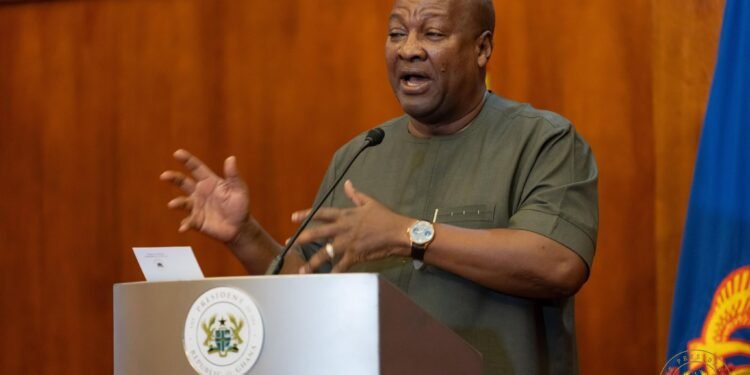Ghana’s Minister for Energy and Green Transition, Hon. John Abdulai Jinapor, has officially received the final report from the Petroleum Downstream Sector Reforms Committee (PDSRC), paving the way for sweeping changes aimed at transforming the country’s petroleum downstream industry.
The 11-member committee, inaugurated on March 14, 2025, was mandated to conduct a comprehensive assessment of Ghana’s petroleum downstream sector and propose reforms to improve efficiency, transparency, competitiveness, and long-term sustainability.
Minister John Jinapor reaffirmed the government’s commitment to resetting and revitalizing the energy sector—especially the petroleum downstream sub-sector, which plays a crucial role in energy distribution and economic stability.
“We pledged to reset Ghana, including the energy sector.
“The downstream is a crucial part of the sector and we aim to enhance regulation while dealing with operational inefficiencies and infrastructural bottlenecks.”
Hon. John Abdulai Jinapor, Minister for Energy and Green Transition

He praised the committee for its diligence and professionalism in undertaking the task.
“I want to thank the members of the committee and all stakeholders for their commitment.
“I had absolute confidence that the committee would deliver nothing short of excellence.”
Hon. John Abdulai Jinapor, Minister for Energy and Green Transition
Stakeholders across the energy value chain have lauded the move as timely, especially in light of Ghana’s evolving energy needs and the global shift toward cleaner, more accountable fuel markets.
Implementing the reforms could improve investor confidence and plug longstanding revenue leakages. For years, Ghana has struggled with smuggling, adulteration, and unfair competition. A robust reform agenda especially with enforcement teeth can change that.
Deep Structural Challenges

Presenting the report, Chairperson of the Committee, Madam Emma Bulley, Esq., highlighted several deep-rooted challenges undermining the sector’s growth and integrity.
“The petroleum downstream has been plagued with a myriad of challenges, including infrastructure bottlenecks, regulatory lapses, non-compliance by some Petroleum Service Providers (PSPs), operational inefficiencies, market constraints, illicit activities leading to unhealthy competition, compromised product quality and revenue loss to the state.”
Chairperson of the Committee, Madam Emma Bulley, Esq.
According to her, these challenges have hindered growth, distorted fair competition, and weakened investor confidence in the sector.
Madam Bulley emphasized that the Committee’s report is not only diagnostic but also prescriptive. She expressed optimism about the sector’s future, provided the recommendations are adopted and implemented comprehensively.
“Fortunately, the Committee has made a number of recommendations.
“Implementing these reforms will transform Ghana’s petroleum downstream sector into a resilient and competitive one. We expect the full commitment of all stakeholders.”
Chairperson of the Committee, Madam Emma Bulley, Esq.

The recommendations, though yet to be fully disclosed to the public, reportedly span reforms in regulatory frameworks, enforcement mechanisms, infrastructural development, digital monitoring systems, and strategies to curb illicit trade and revenue leakages.
The Petroleum Downstream Sector Reforms Committee comprises a diverse and experienced membership drawn from both public and private sector backgrounds.
Members of the committee include Madam Emma Bulley, Esq (Chairperson), Dr. Kwabena Donkor, Ing. James D. Yamoah, Abass Ibrahim Tasunti, Joshua Anaman Sackey, Samuel Mills Anderson, Dr. Patrick Kwaku Ofori, Dr. Riverson Oppong, Gershon Klutse, Isaac Kofi Ampofo (Secretary).
The Ministry of Energy is expected to convene follow-up meetings with key stakeholders, including the National Petroleum Authority (NPA), Bulk Oil Storage and Transportation Company Limited (BOST), and Oil Marketing Companies (OMCs), to prioritize and operationalize the reforms.
Stakeholders are now expected to engage in consultations to fine-tune policy strategies before formal implementation begins.
The Ministry of Energy noted that the government remain committed to ensuring that the reforms yield tangible benefits, including a more efficient, competitive, and sustainable petroleum sector.
READ ALSO: Equities Tread Water as Policy Rate Remains at 28%, Financial Analyst Warns























